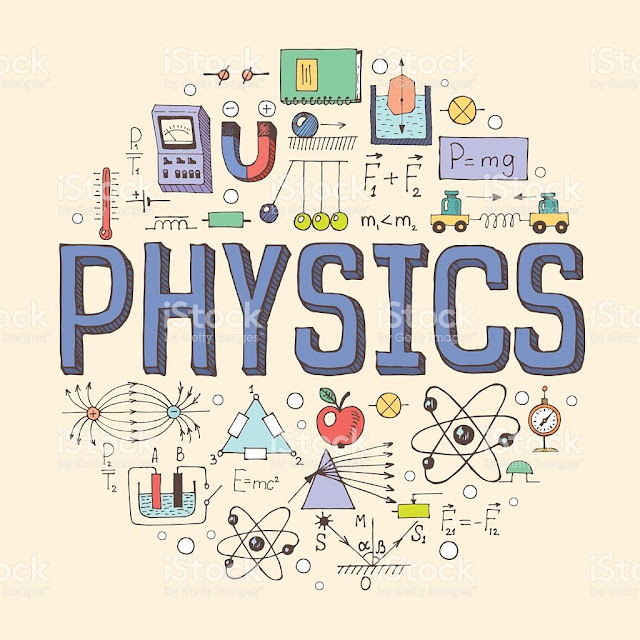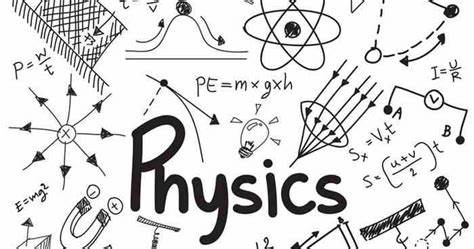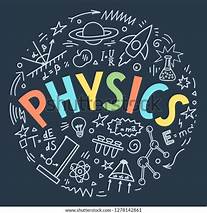I'm going to be talking about 15 highly repeated jamb topics but before I go depending on today's topic I think it is very important for me to explain how jamb really sets their questions. jamb is basically an o-level exam that tests you based on majorly three criteria first is your retention of the material the second is your understanding of the material and third is your ability.
To apply the concept of length and applying the concept is very important because physics is a lot of calculation and it does along with application also there is a list of topic you expected to know and you can find the list of those topics in the jamb syllabus so for jamb physics there are 39 topics that you are expected to know and something i noticed about issue of junk question is that they set only a few questions from each topic so what does this mean it means that for you to score very high in jump you need to have knowledge of a lot of topics if not all the 39 at least most of those topics but that doesn't change the fact that there are some topics that are highly repeated these topics are the fundamental of physics and it is impossible to not set questions from this topic and i'm going to be talking about 15 of them but just so we are clear 15 topics may not just be enough for you if you are aiming to score both it's your nights in your physics jumb you should learn almost all of those topics but if you are maybe.
Pressed on time fee you cannot cover all of the topics in the jamb syllabus or you find it very difficult to learn the topics then you should read this content because I'm going to talk about some topics you should focus on I'll explain a little bit how you can understand these topics and how they are related to one another let's get into the content
THE TOPICS ARE:
1. DIMENSION AND UNIT ANALYSIS
Dimension and unit analysis is not a highly repeated topic itself but knowing how to analyze units and how to analyze formulas is going to help you a lot because as you keep studying you're going to know many formulas you should know how to combine these formulas together
2. SCALAR AND VECTOR
You should know how to resolve vectors no triangular vector the parallelogram of vector and very very important you have to understand how to resolve vectors into different components resolving a vector into a horizontal vertical component can overemphasize how important this is very important because you'll be needing it in different topics like force motion
The next five topics I'm going to be talking about are simple and most of them are ss1 topics trying to learn them very well because they are quite easy to understand and they are also repeated.
3. WORK, ENERGY, AND POWER
You should know the basic formula for working an enormous power.
4. ELASTICITY AND INELASTICITY
Try to learn how to calculate the elastic constant very important how to find the original length and finally change the length force of those things learn the young modulus is 10 sign stress over a thin size string another formula for stress itself not the formula for strength not the unit of all of those things.
5. MACHINE
In machine, you should learn how to calculate the efficiency of the different kinds of machine learning calculate mechanical advantage velocity ratio understand the basic concepts all these are still fairly simple topics.
6. TEMPERATURE AND MEASUREMENT
The different apparatuses of the other instruments for measuring temperature are also very important in how to convert the temperature from one unit to another degree to kelvin kelvins to degrees Fahrenheit scale to kelvin scale Kevin so far and skill.
7. HEAT ENERGY
You should learn expansivity linear expansivity area expansivity volume expansivity you should also learn how to eat maintain equilibrium like if you put a hot ball in water how the temperature of the bowl under water eventually gets to the same level and how to calculate the transfer of it also on that it you should also learn about its transfer conduction convection and radiation they are ubiquitous question.
8. GAS LAW
Lamborghini general gas equation if you understand this topic there is very hard for them for you to see a question you are not able to solve.
9. MOTION
Motion is actually in two segments in your textbook you have it in motion one and motion two try to learn motion very well learn the equations of motion and how to apply them and learn motion under gravity or even understand motion undergravity there are some key ideas you should know the light just went over or continue so far it's a lane motion under gravity it's you should know things like at maximum i the initial velocity is zero so even if you are throwing an object up you know when you throw it up it comes down right momentarily as the maximum height it is zero then the velocity guess is by the time it is almost getting to the ground you should learn all those things if you learn the formula you don't know those basic principles you're going to find it difficult to answer questions and you should also know when g is negative and one g is positive for example if i'm trying object of g is negative the speed is going to be decreasing because g is negative it is acting against gravity right but when it is coming down g is positive the velocity is going to be increasing as you go down so when you understand this basic principle of motion you are going to find it quite simple so you should also know motion at angle emotion at a particular angle your projectile motion.
10. FORCES
You should learn the major force like frictional force you should know newton's law of motion and how the formula f equals m and actually came to be you should know the impulse and momentum of us and how to use the equilibrium of forces to this is quite a large topic also but learning it is going to be worth it because questions come out from this topic
`Now let's go to another very very important topic don't make the mistake of not learning this topic because it's always common.
\
11. WAVES
Is not like one single topic it's quite large actually but in waves, you should learn the general properties of weave in general purposes of using lenses like the type with mechanical and electromagnetic longitudinal and transverse waves and the principle behind them and how they work and why they are different from each other the examples you should also understand things like amplitude frequency wavelength speed of the wave and so on now specifically in width.
12. SOUND WAVE
This is another topic that is quite simple to understand so in the sound you learn theory mostly you should know the principle like what a sound wave is and the type of wave it sees which if you've read the general properties of which you already know by now you should also learn how to calculate the speed of with air cooled things on f1 reverberation now lightweight is super super important in a light sweep you should know how to use lens formula mirror formula understand resilient propagation of
light eclipse and formation of shadows and all of those things you should know how for the different less concave lenses which you know is a positive focal and negative focal length they might say don't think from the beginning but they are not that difficult if you chill and learn them also in light length dispersion of light of white light so, for example, they will tell you why is this green color looking green it is green because it absorbs all of that color of the light spectrum and emits only green
13. CAPACITOR
This is also super simple to understand how to calculate capacitor in series and then parallel I usually understand how to calculate capacitance using this formula even though just these three basics under capacitance and some theories on direct so you're going to be able to solve almost every question on capacitance.
14. ELECTRICITY
In electricity you should know there are two kinds of electricity static and current electricity static electricity uses the ss1 part of physics then currently electricity which is quite larger you should know how to calculate the potential difference electromotive for how to calculate resistance on slow actually calculate resistance and series resistance and parallel alternate electrical energy they are very very very important.
15. FIELD
So you should also try to learn gravitational field and magnetic field and lastly modern physics so in modern physics one of the most repetitive questions is radioactivity productivity can also be a bonus for you even though it's wrong you also know things like alpha particle beta particular gamma rays if alpha particles emitted fr a particular rejected elements what would be left all those equations.
Tags:
Education
EDUCATION: 15 Most repeated Physics Topics in JAMB (2023)
jamb
Physics
physics topics





.jpg)
Please drop your comment about this and share with your friends. Thank you
ReplyDelete